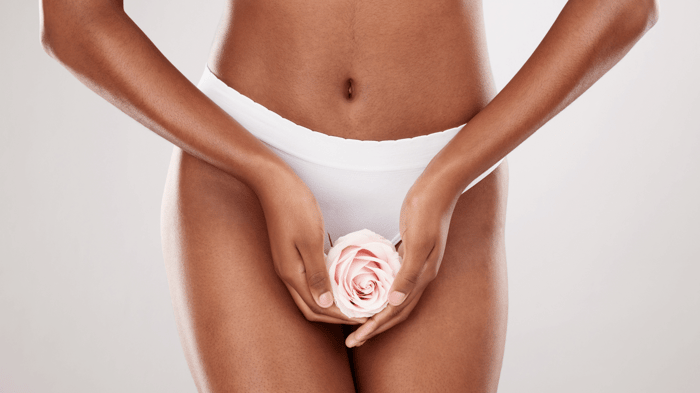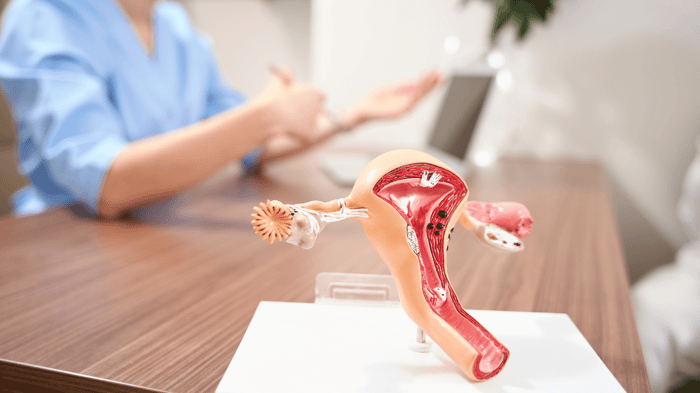Table of Contents
Vaginal lubrication is one of the most essential—yet often overlooked—elements of sexual health. While it may seem like a small detail, it has a powerful influence on intimacy. It minimizes friction, enhances sensitivity, supports arousal, and builds confidence—all crucial for making sex pleasurable and empowering.
When vaginal lubrication is plentiful and balanced, intimacy flows with ease. But when it’s lacking, the experience can shift dramatically, sometimes becoming uncomfortable or even painful. The truth is, lubrication is more than just a physical response. It’s closely tied to satisfaction, confidence, and emotional connection, making it a cornerstone of sexual health and well-being.
In this guide, we’ll explore the fascinating biology of lubrication, how it enhances sexual pleasure, what factors influence it, and the solutions—both natural and medical—that can help when it’s disrupted. And yes, we’ll also talk about how products like She Juicy can support vaginal comfort and hydration from the inside out.
Why Vaginal Lubrication Matters
Lubrication isn’t just about avoiding friction. It’s a holistic mechanism that impacts how the body responds to intimacy:
Comfort: It reduces irritation and soreness.
Pleasure: It heightens sensitivity and makes orgasm easier to reach.
Confidence: It reassures you that your body is responding, which can ease performance anxiety.
Connection: It allows the mind and body to relax, building trust and intimacy.
In short, lubrication creates the conditions where pleasure thrives. Without it, even the most loving encounter can feel strained.
How Vaginal Lubrication Enhances Sexual Pleasure
Reducing Friction and Discomfort
Without enough lubrication, penetration can cause irritation, burning, or even microtears in delicate tissue. This doesn’t just hurt in the moment—it can also make people dread intimacy in the future. Adequate lubrication makes the experience smooth, comfortable, and safe, letting partners focus on pleasure instead of discomfort.
Supporting Arousal and Orgasm
Lubrication is deeply linked to arousal. Increased blood flow to the genital area triggers natural fluids, which heighten sensitivity and make varied movements more enjoyable. This flexibility increases the likelihood of orgasm and helps sustain arousal throughout intimacy.
Strengthening Emotional Intimacy
Comfort during sex isn’t just physical—it’s emotional, too. When the body feels at ease, the mind can relax. This allows intimacy to feel playful, connected, and joyful. On the other hand, lack of lubrication may lead to anxiety, avoidance, or self-doubt. Many women describe lubrication as something that directly influences their confidence in their sexuality.
The Science Behind Vaginal Lubrication
The body’s ability to lubricate depends on a combination of biological systems. These include:
Secretory tissues: The vaginal walls, Bartholin’s glands, and cervical mucus all contribute to moisture.
Hormones: Estrogen plays the leading role, keeping tissue elastic and responsive. Testosterone also influences arousal and sensitivity.
Blood flow: Vasocongestion during arousal allows plasma transudate to pass through the vaginal walls, creating lubrication.
Neurochemical signals: Nitric oxide, peptides, and neural pathways control vascular dilation and the body’s arousal response.
This elegant coordination ensures that when arousal begins, the body is ready to follow.
Factors That Influence Vaginal Lubrication
Hormonal Changes
During menopause—or after certain medical treatments—estrogen levels drop, often leading to dryness. Hormone therapy or targeted local treatments may help, but many women also seek non-hormonal solutions.
Stress and Lifestyle
Stress interferes with the brain’s ability to send arousal signals to the genitals. Lack of sleep, poor diet, and smoking can also disrupt natural lubrication. Conversely, balanced nutrition, hydration, and exercise support circulation and hormonal health, all of which help the body produce lubrication more effectively.
Medical Conditions and Medications
Conditions like diabetes, thyroid disorders, or autoimmune diseases can affect blood flow and hormones. Common medications, such as antidepressants or antihistamines, can also reduce vaginal moisture as a side effect.
Psychological and Relational Factors
Anxiety, depression, and unresolved relationship tension can reduce arousal and lubrication. Negative experiences or poor body image may also block the body’s natural responses. In these cases, counseling, open communication, and self-compassion can be powerful solutions.
Solutions to Improve Vaginal Lubrication and Sexual Comfort
Improving lubrication is often a holistic process. It involves physical stimulation, healthy lifestyle adjustments, external aids like lubricants, and sometimes supplements or therapies.
Foreplay and Sexual Stimulation
Extended foreplay—touching, kissing, oral sex, or sensual play—allows more time for arousal to build. Research shows women who engage in longer foreplay report better lubrication and sexual satisfaction.
Nutrition and Hydration
The body needs hydration at a cellular level to support lubrication. Drinking enough water, eating foods rich in omega-3 fatty acids, and consuming phytoestrogen-rich foods like soy can all contribute to vaginal comfort.
Stress Management
Practices such as mindfulness, meditation, and even simple breathing exercises can reduce stress and improve sexual response. When the mind is calm, the body responds more fully.
Lubricants and Moisturizers
Lubricants provide immediate relief and enhance comfort during sex. Moisturizers, used regularly, can improve hydration over time. Choosing body-safe, hypoallergenic products without harsh chemicals is key.
Supplements and Natural Support
Here’s where She Juicy comes in. Designed with women’s intimate health in mind, She Juicy helps support hydration, circulation, and confidence in the bedroom. Unlike external products that work temporarily, She Juicy works from within, offering long-term support for vaginal comfort.
Hormonal and Non-Hormonal Therapies
Medical treatments such as low-dose vaginal estrogen can restore tissue elasticity, while non-hormonal gels with hyaluronic acid also help maintain comfort. These options are especially valuable for women in menopause or post-cancer treatment.
Conclusion
Vaginal lubrication is more than a physical response—it’s a key part of pleasure, intimacy, and confidence. When it’s balanced, intimacy feels joyful and connected. When it’s lacking, it can lead to discomfort, anxiety, or avoidance.
The empowering truth? There are many ways to support lubrication, from simple lifestyle changes and foreplay to external aids like lubricants and natural support such as She Juicy.
At Flower Power, we believe every woman deserves to feel comfortable and confident in her body. If you’re ready to explore natural ways to support your intimate health, learn more about She Juicy—your partner in hydration, comfort, and bedroom confidence.
FAQs
What are the benefits of using lubricants?
Lubricants instantly reduce friction, lowering the chance of irritation and pain. Research shows women who use lubricants often report greater pleasure, satisfaction, and willingness to explore intimacy.
How do natural fluids compare with commercial lubricants?
Natural vaginal fluids vary with arousal, hormones, and cycle stage. Commercial lubricants are consistent, reliable, and long-lasting, making them an excellent option when natural lubrication isn’t enough.
Can oils like olive oil be used safely as lubricants?
Not recommended. Oils can damage latex condoms, trap bacteria, and increase the risk of irritation or infection. Water-based or silicone-based lubricants are safer alternatives.
Are there side effects to using lubricants?
Some people may experience irritation or sensitivity, especially with lubricants containing glycerin, dyes, or fragrances. Hypoallergenic, pH-balanced products minimize this risk.
How does She Juicy support vaginal lubrication?
She Juicy is a supplement formulated to hydrate the body from within, supporting circulation and vaginal comfort. Unlike topical products, it works at a systemic level to improve natural moisture and confidence over time.
What’s the difference between moisturizers and lubricants?
Moisturizers are used regularly to maintain vaginal hydration day-to-day, while lubricants are applied during sex to reduce friction. Many women benefit from using both.
Can stress really affect vaginal lubrication?
Absolutely. Stress activates cortisol, which interferes with arousal and blood flow. Managing stress through self-care, therapy, or relaxation techniques can improve both natural lubrication and overall sexual well-being.
Is lack of lubrication always a sign of a health problem?
Not necessarily. Sometimes it’s just about timing, foreplay, or hydration. But if dryness persists, it may signal hormonal changes, side effects from medications, or other underlying issues worth discussing with a healthcare provider.










